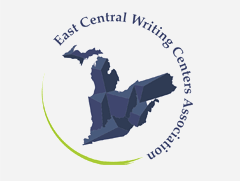Presentation/Proposal Title
Embracing Waywardness: Counter-narratives of Progress and Community
Type of Presentation/Proposal
Individual Presentation or Paper
Start Date
5-4-2019 9:45 AM
End Date
5-4-2019 10:45 AM
Keywords
grand narratives, cultural rhetorics, community, emotional labor, writing center administration.
Description
Barely six weeks in to my new position as graduate student assistant director of the writing center and, words – microaggressions, depression, fear, confusion, suspicion, hostility, and suicide - landed like cluster grenades, each one seeming to tear a new hole in the foundation of community in the writing center. How do we feel, what do we do, how does a community survive when the story we’re experiencing isn’t the story we want or expected - when it is, in a word, terrible? We are in a post-grand narrative moment. We know our labor and our centers do not look, act, and feel cozy, iconoclastic, or focused on one-on-one tutoring all of the time (McKinney). And yet, we must continue to move beyond and press deeper. Gibson et al assert that our social institutional narratives are “embedded in or with” individual narratives (72). Therefore, we need to think “about the work that the word ‘communities’ does, as well as what it could do, in the work that we do” (Ahmed and Fortier 252). Using critically reflexive stories as a way to change and shape practice, this presentation will highlight the relationship between community and progress and disrupt their grand narratives. In this telling, progress “is not some mystical force or dialectic lifting us ever higher...It’s the result of human efforts….[it] does not mean that everything becomes better for everyone everywhere all the time” (Pinker). Progress, rather, “involves changing as a person” (Quinlan 107).
Embracing Waywardness: Counter-narratives of Progress and Community
Deeds Boardroom
Barely six weeks in to my new position as graduate student assistant director of the writing center and, words – microaggressions, depression, fear, confusion, suspicion, hostility, and suicide - landed like cluster grenades, each one seeming to tear a new hole in the foundation of community in the writing center. How do we feel, what do we do, how does a community survive when the story we’re experiencing isn’t the story we want or expected - when it is, in a word, terrible? We are in a post-grand narrative moment. We know our labor and our centers do not look, act, and feel cozy, iconoclastic, or focused on one-on-one tutoring all of the time (McKinney). And yet, we must continue to move beyond and press deeper. Gibson et al assert that our social institutional narratives are “embedded in or with” individual narratives (72). Therefore, we need to think “about the work that the word ‘communities’ does, as well as what it could do, in the work that we do” (Ahmed and Fortier 252). Using critically reflexive stories as a way to change and shape practice, this presentation will highlight the relationship between community and progress and disrupt their grand narratives. In this telling, progress “is not some mystical force or dialectic lifting us ever higher...It’s the result of human efforts….[it] does not mean that everything becomes better for everyone everywhere all the time” (Pinker). Progress, rather, “involves changing as a person” (Quinlan 107).


